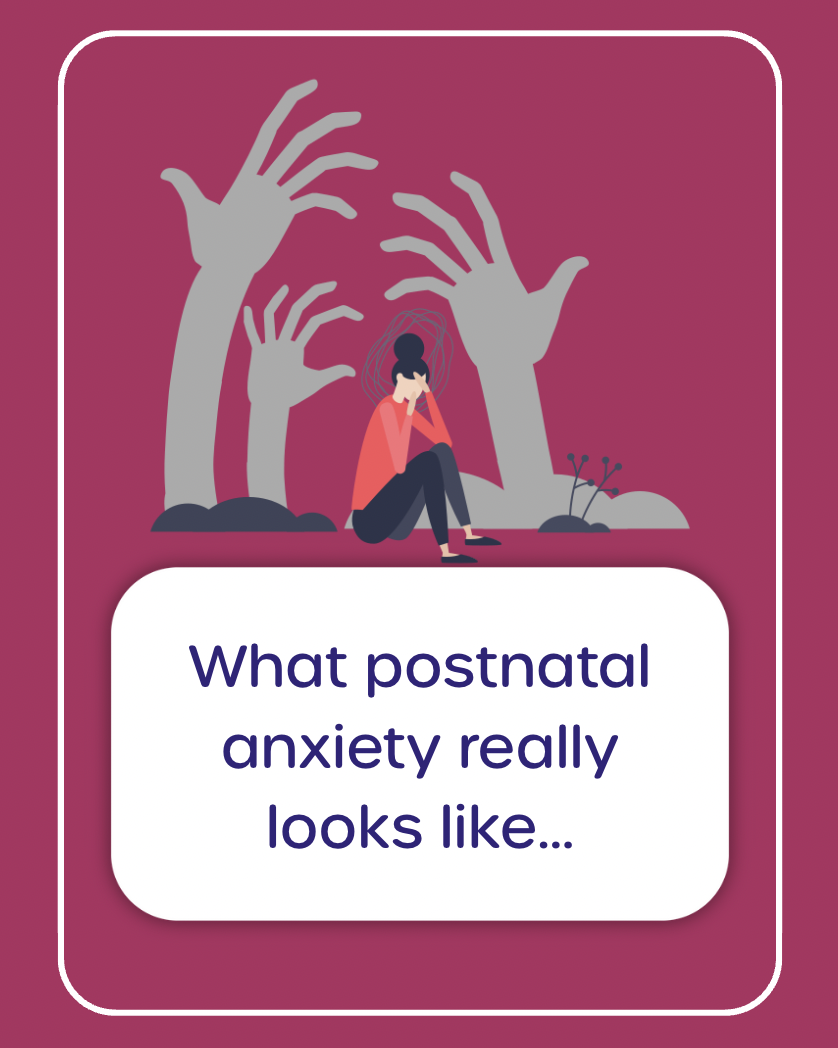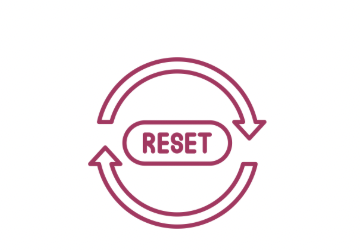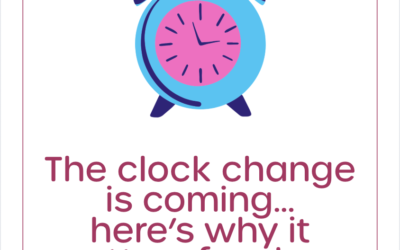Becoming a parent is one of the biggest emotional shifts a person can experience.
Your body changes, your hormones fluctuate, your sleep disappears, and suddenly, the weight of caring for a tiny human falls entirely on your shoulders.
Most parents expect tiredness and mood swings in the early days, but what often takes them by surprise is anxiety. Not the occasional worry or protective instinct we all feel, but an all-consuming, physical, and emotional state that can make even the simplest days feel overwhelming.
Postnatal anxiety can affect anyone- first-time parents, experienced parents, mothers, partners, adoptive parents, and even grandparents helping with newborn care. It doesn’t discriminate. And yet, it’s still one of the least talked-about aspects of postnatal mental health.
This article will help you understand what postnatal anxiety looks like, why it happens, and what you can do to start feeling calm and confident again.
What Is Postnatal Anxiety?
Postnatal anxiety (sometimes called postnatal or postpartum anxiety) is a recognised mental health condition that can occur any time in the first two years after giving birth.
While postnatal depression tends to get more attention, anxiety can appear on its own, alongside depression, or even long after mood symptoms have improved. It’s characterised by excessive worry, intrusive thoughts, and physical signs of stress that don’t go away with reassurance.
It’s completely normal to feel protective of your baby, but postnatal anxiety goes beyond typical concern. It can feel as if your body is stuck in a constant state of “what if?”, scanning for danger even when your child is safe.
How Common Is It?
Research suggests that around 1 in 10 women experience postnatal anxiety, but professionals believe the real number is higher. Many parents don’t recognise what they’re feeling as anxiety, and others fear being judged as overprotective or unable to cope.
Because anxiety can appear months or even years after birth, it’s often missed. A parent might assume they’re “past the postnatal stage” or that their anxiety must be about something else when in fact, their mind and body are still processing the changes, responsibilities, and emotional intensity of early parenthood.
What Does Postnatal Anxiety Feel Like?
Every parent’s experience is different, but common symptoms include:
- Constant worry or fear that something bad will happen to your baby or family.
- Racing thoughts that are difficult to control, even when you know they’re unlikely or irrational.
- Physical symptoms such as a tight chest, shortness of breath, racing heart, or dizziness.
- Sleep disturbance – finding it hard to fall or stay asleep even when your baby sleeps.
- Irritability or restlessness, feeling unable to sit still or relax.
- Intrusive thoughts (upsetting mental images or ideas that appear suddenly).
- Difficulty concentrating or feeling “foggy.”
- Feeling detached from joy or unable to switch off.
For some, anxiety shows up as panic attacks – sudden waves of fear, breathlessness, or a sense that something terrible is about to happen. For others, it’s a constant hum of tension that never quite goes away.
Many parents describe it as living in a body that’s permanently braced for disaster.
Why Does It Happen?
There’s no single cause of postnatal anxiety, it usually develops from a mix of physical, psychological, and social factors.
1️⃣ Hormonal changes
After birth, levels of oestrogen and progesterone drop dramatically. These hormones play a key role in regulating mood, and their sudden decrease can trigger heightened anxiety or low mood.
2️⃣ Sleep deprivation
New parents often underestimate how severely broken sleep affects mental health. Even a few weeks of fragmented rest can increase cortisol (the stress hormone), lower resilience, and intensify anxious thoughts.
3️⃣ Past experiences and trauma
If you’ve had previous anxiety, depression, trauma, or pregnancy or birth complications, your risk of postnatal anxiety increases. Sometimes old memories resurface or unresolved experiences are triggered by the demands of parenthood.
4️⃣ Responsibility overload
Caring for a baby brings enormous responsibility. It’s natural to feel protective but when you add exhaustion, information overload, and the pressure to “get it right,” it can tip into anxiety.
5️⃣ Lack of support and unrealistic expectations
Many parents feel isolated or unsupported, especially once the initial rush of visitors fades. Social media adds pressure to look calm and content when inside you’re struggling.
The Hidden Side: When Anxiety Appears Later
One of the biggest myths about postnatal mental health is that it only happens in the early weeks.
In reality, anxiety can surface months or even years after birth — when life finally slows down enough for your body to process everything it’s endured.
For example, you might have managed two sleepless babies, demanding routines, or work transitions without much anxiety and then, once things calm down, it suddenly appears. That’s because your nervous system has been in survival mode for so long that when it finally has space, the stored stress surfaces.
This delayed response is completely normal and just as valid as anxiety that appears straight after birth.
How Postnatal Anxiety Affects Everyday Life
Anxiety can touch every part of parenthood. It can make you:
- Avoid certain activities (like driving, leaving the house, or letting others care for your baby).
- Feel hyper-vigilant, checking your child’s breathing or safety repeatedly.
- Struggle to focus at work or relax with friends.
- Doubt your parenting decisions, even when things are fine.
- Feel guilty or ashamed for not “enjoying” motherhood as much as you thought you would.
Over time, it can leave you feeling emotionally and physically drained. But the important truth is this- none of this means you’re doing a bad job.
It simply means you’re under immense pressure and your mind is asking for care.
How to Start Calming Your Mind and Body
There’s no instant cure, but there is a path forward and it doesn’t have to be complicated or clinical.
1. Name it
Recognising that what you’re feeling is postnatal anxiety is the first step. You’re not “overreacting” – your brain and body are working overtime to keep you safe. Naming it helps you separate your identity from your symptoms.
2. Talk about it
Whether it’s your partner, a friend, a GP, or a health visitor, speaking the words out loud is powerful. You don’t have to have all the answers – simply saying “I’m struggling with anxiety” opens the door to support.
3. Focus on rest
You can’t heal an exhausted body. Try short naps, earlier nights, slower mornings, or small boundaries around social media. Even 10 minutes of true rest helps lower your stress response.
4. Regulate your breathing
Anxiety changes your breathing pattern, often making it shallow and fast. Practise exhaling longer than you inhale – for example, breathe in for 4 counts, out for 6. This activates the parasympathetic nervous system and physically calms the body.
5. Seek professional help early
If anxiety is affecting your daily life, speak to your GP, health visitor, or a qualified therapist. Treatment might include talking therapy (CBT, counselling) or medication. Both are effective and safe for parents.
6. Reconnect with your body and environment
Anxiety lives in the body, not just the mind. Gentle walks, stretching, yoga, or grounding exercises can help you feel present again. Even small sensory anchors – a warm drink, soft blanket, or soothing scent – signal safety to your nervous system.
7. Don’t wait for crisis
You don’t have to “deserve” help by hitting rock bottom. Support works best when it’s early, gentle, and consistent.
How Partners, Family and Friends Can Help
Support doesn’t have to mean fixing things, it’s about creating space for honesty.
If you know someone who might be struggling with postnatal anxiety:
- Listen without judgement or solutions.
- Offer practical help (meals, childcare, errands).
- Encourage rest and reassure them that seeking help is a sign of strength.
- Avoid phrases like “try to relax” or “you’ve got nothing to worry about.” Instead say, “I can see how hard this feels. You’re not alone.”
Compassion and patience make a huge difference.
Recovery Is Absolutely Possible
Postnatal anxiety can feel endless, but with time, understanding, and the right support, it does get better. Many parents go on to feel calmer, more resilient, and even more self-aware because of what they’ve overcome.
You can love your child deeply and still need support. Both can be true. 💛
If this article feels familiar, please don’t wait until things feel unbearable.
Find Support Inside The Nest
If you’d like a safe, expert-led space to talk about how you’re feeling, come and join The Nest – my calm, non-judgmental online community for parents.
Inside The Nest, we talk openly about anxiety, low mood, sleep, behaviour, and all the real parts of parenting that people don’t always share online. You’ll find:
- Daily reassurance and guidance from a qualified Health Visitor
- Small, supportive WhatsApp groups
- Gentle prompts, wellbeing check-ins, and practical tools to help you feel more balanced
You don’t have to go through this alone.
Support is here when you’re ready. 🌿
👉 Join The Nest at essentialparenting.co.uk or follow @essential_parenting for daily guidance.
Final Thought
Anxiety doesn’t mean you’re weak – it means you’ve been strong for too long without enough rest, support, or reassurance.
You deserve to feel calm, connected, and confident again.
Recovery is possible – even if you can’t picture it yet.




0 Comments